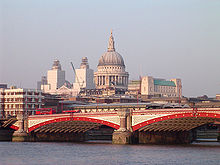Specifications. Entitled to have these strictly enforced. The following case so clearly sets this forth that I cannot do better than quote it:-
"In cases in which the work has been done in a manner different from that specified in the contract, the employer is not bound to pay the contract price, nor the value of the work done. He is bound to pay the contract price, less the amount it will take to alter the work, so as to make it correspond with the specification. This should be understood as applying to a case where the employer either has, or intends to have, the work altered and made to correspond to the original contract. if he has accepted the inferior work, and does not intent to have it altered, then it seems reasonable that teh workman should recover the value of the inferior work, taking the contract price as the criterion of the value of the works specified; that is, that he should have so much less of teh contract price as the inferior is less valuable than the works contracted to be performed. For instance: if a builder has contracted to build a house with the best bricks at the price of inferior bricks, and he uses inferior bricks, and his employers accept and use the house, he ought not to recover the contract price, because he has not performed his contract; nor ought he to recover the value of the bricks used, because that might be as much, or more, than the contract price, and he must suffer for breaking his contract; nor ought the employer to be allowed for pulling down and rebuilding the house with the best bricks, because he does not intend to do so, but is content to accept the house build with inferior bricks. But the difference in value between the bricks agreed to be used and those actually used should be deducted from the contract price; and by this means the builder will lose just as much as he expected to gain by his roguery."
Next let me see what an architect may not do without losing his position. A curious case will illustrate this. An architect, A, entered into an undertaking with his employer, B, that a house should be erected for a sum which was not to exceed £1500, including his own commission and all expenses, and engaged a builder to give an estimate based on the quantities this architect had prepared. This builder then entered into a contract with B for the completion of the work, according to A's plans and under A's superentendence, for £1369, with power for A to order extra works, and with a clause providing that all questions between the parties under the contract should be settled by the award of A.
A did not mention to the builder his undertaking given to B.

It was held that the architect A, was the agent of the employer; and that his undertaking having been concealed from the builder, the arbitration clause in the contract could not be enforced; and that the plaintiff was entitled to an account for what was due to him for any works executed by him under the architect's direction, not included in the contract, and for any works so executed under the contract, the price of which was not therein included, and for any variations made under the architect's direction of works included in the contract.
So that the architect, through the concealment, was by the law dispossessed of all power, although the proviso in the contract gave him full powers. The wording of the proviso was as follows:-
"And it is hereby further agreed that all questions between the said parties touching the matters relating to this contract, shall be left to the sole determination or award of the said architect; and the said parties hereto respectively shall and will abide by, and perform and keep, the said determination or award made in writing under his hand and seal, delivered to the said parties respectively direct. And it is hereby further agreed by and between the said parties that the submission hereby made shall, at the option and at the expense of either of the parties requiring the same, be made a rule of Her Majesty's Court of the Queen's Bench at Westminster." (note also:)(Queen's Bench).
Some protection the architect has, even if his drawings cannot be carried out, as the following summary of the important case which came before the House of Lords relating to the rebuilding of Blackfriars Bridge, will show:-
"Where plans and a specification for the execution of a certain work are prepared for the use of those who are asked to tender for its execution, the person asking for the tenders does not enter into any implied warranty that the work can be successfully executed according to such plans and specification.
"The contractor for the work cannot, therefore, sustain an action for damages, as upon a warranty, should it turn out that he could not execute it according to such plans and specification.
"A contractor contracted with the defendants to take down an old bridge and build a new one. Plans and a specification prepared by the defendant's engineer were furnished to him, and he was required to obey the directions of teh engineer. The descriptions given were stated to be 'believed to be correct' but were not guaranteed; and in one particular matter at least, he was warned to make an examination for himself. next page